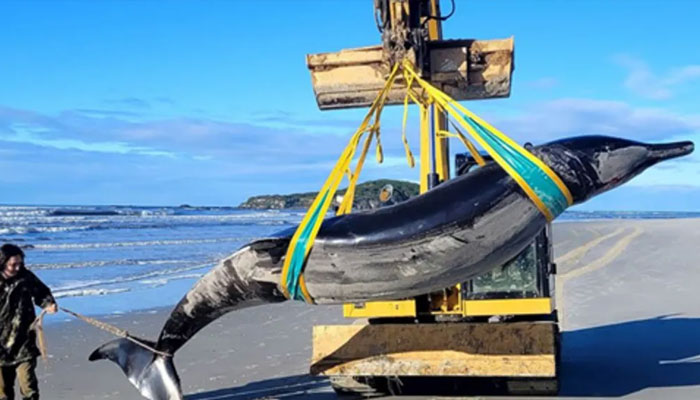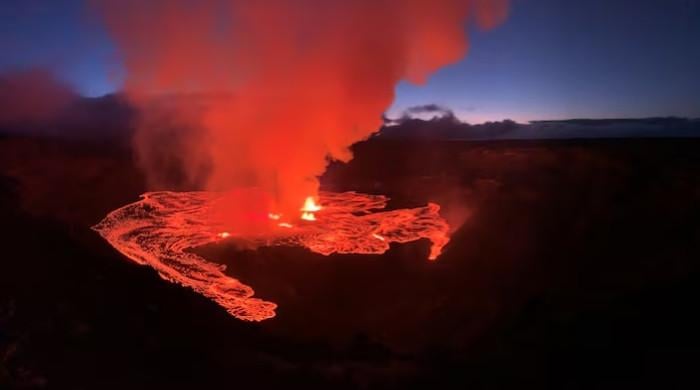World's rarest whale washes up dead on New Zealand beach
It is worth noting that there is no living specimen of this species and it has only been sighted seven times
July 17, 2024

World’s rarest whale the spade-toothed whale which was only identified in the year 2010 has been reported dead on a New Zealand beach, Daily Mail reported.
It is worth noting that there is no living specimen of this species and it has only been sighted seven times.
Its population density, feeding habits, and preferred geographical locations remain unknown to scientists in the southern part of the Pacific Ocean.
Department of Conservation’s marine technical adviser, Hannah Hendriks said people know ‘very little, in fact, practically nothing’ about the creatures. This will lead to some amazing science in discovery and world-first information, he added.
This could be the first specimen of the spade-toothed whale in a state that can be dissected, meaning the diet of the specimen could be investigated, how it is related to other such specimens and possibly details of its habitat could be discovered. Hopes of a more detailed analysis were cut short when earlier excavations on the north of New Zealand’s North Island were covered up before scientists could carry out DNA tests on the remains to identify them.
The Maori community as well as the researchers will discuss further examination of the whale as it has been taken to cold storage immediately.
PWC also states that whales have social and cultural values for New Zealand people where the whales are classified as taonga, or treasures. Indigenous leaders from the Pacific signed a document in April of this year in which they agreed that whales should be considered as ‘Legal persons’, though this does not apply in legal systems of signatory countries.
No records exist about the spade-toothed whale. Perhaps, the species appears even less often, thus its whereabouts remain unseen although the part of the world in question is the South Pacific Ocean with its trenches. ’It’s quite challenging to study marine mammals in the absence of sightings at sea,’ Marvin Hendriks said. ‘It’s a bit of a needle in a haystack, you don’t know where to look. ’









